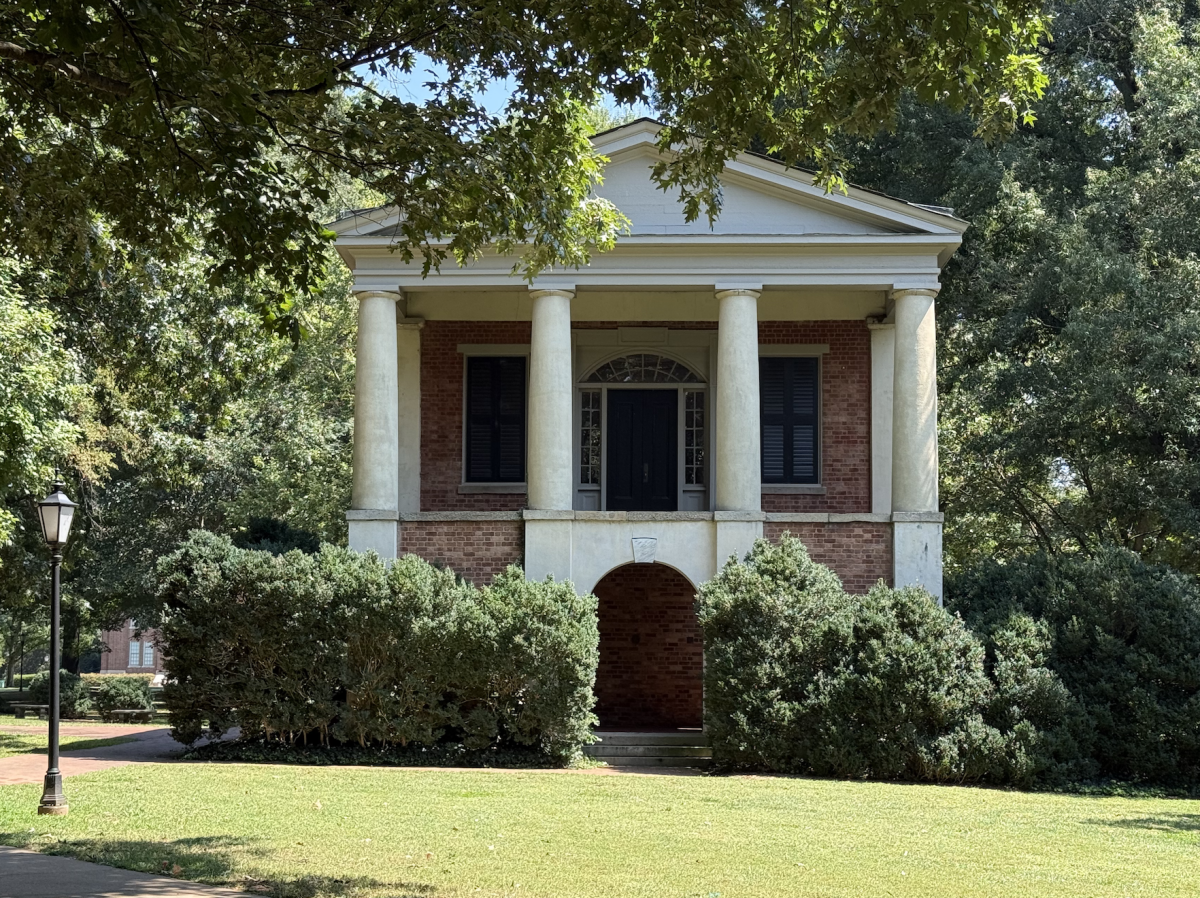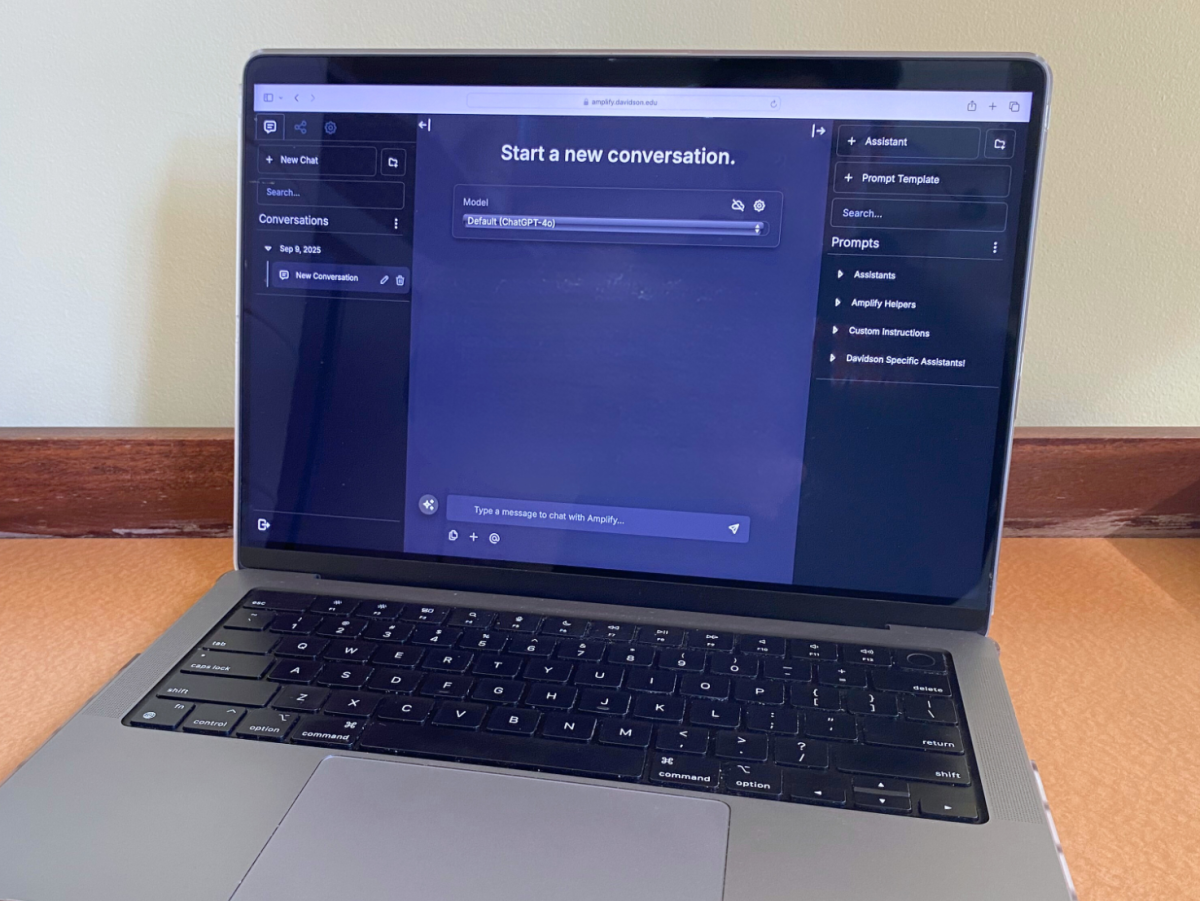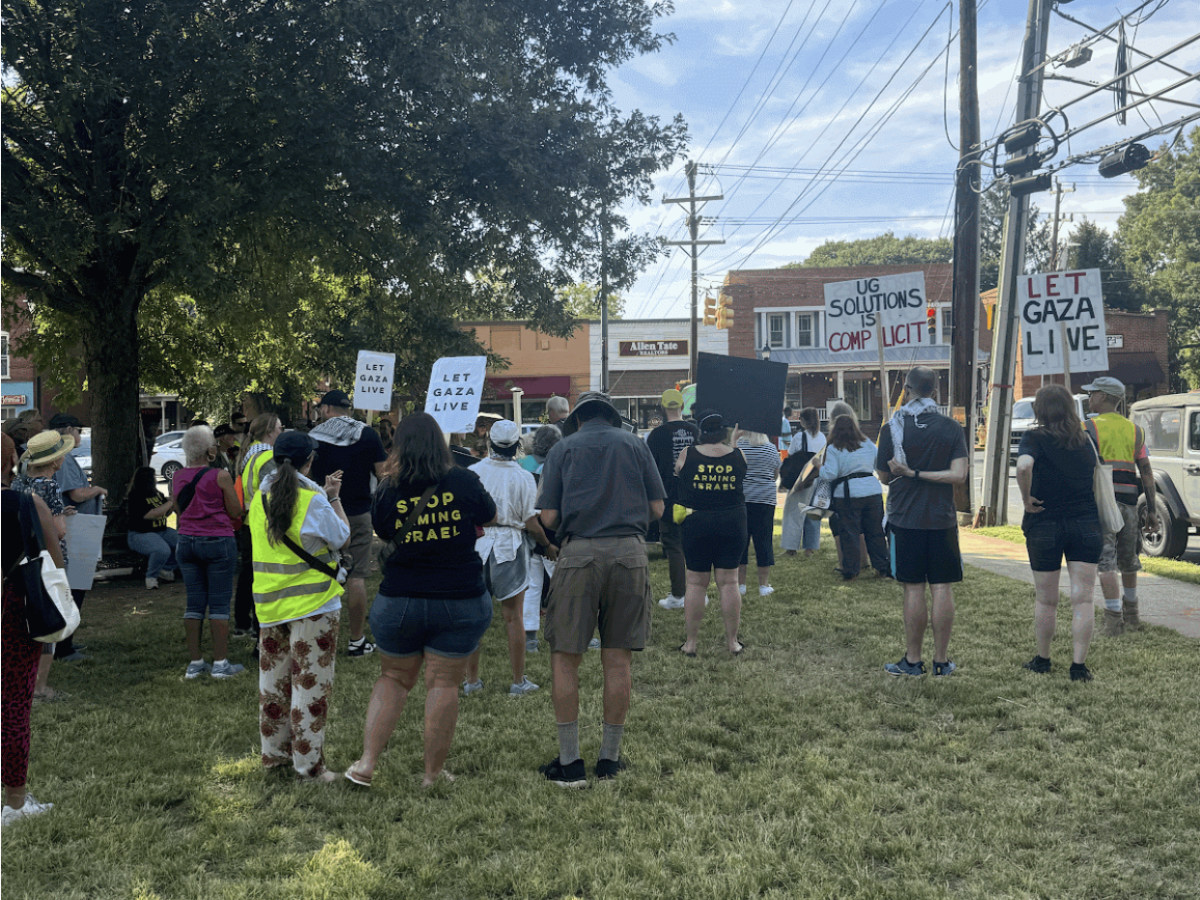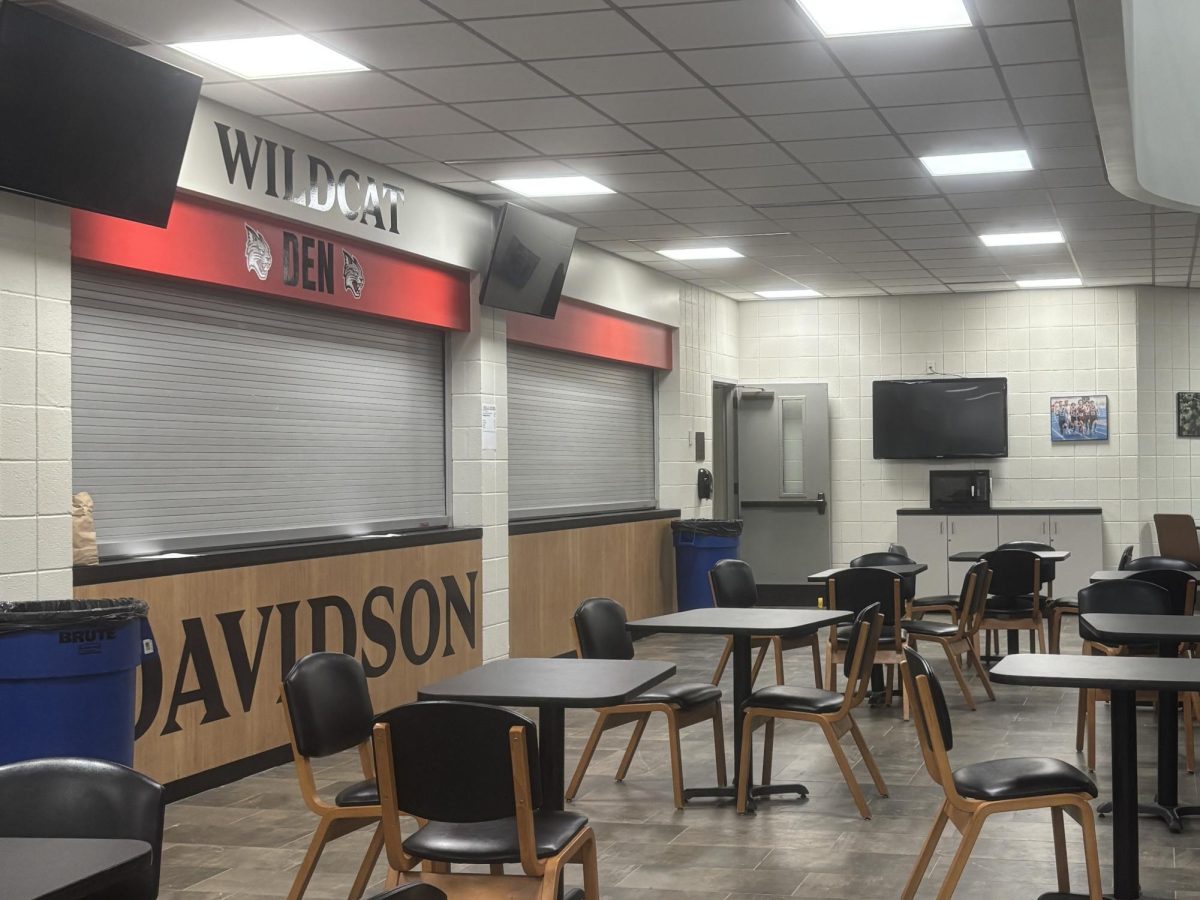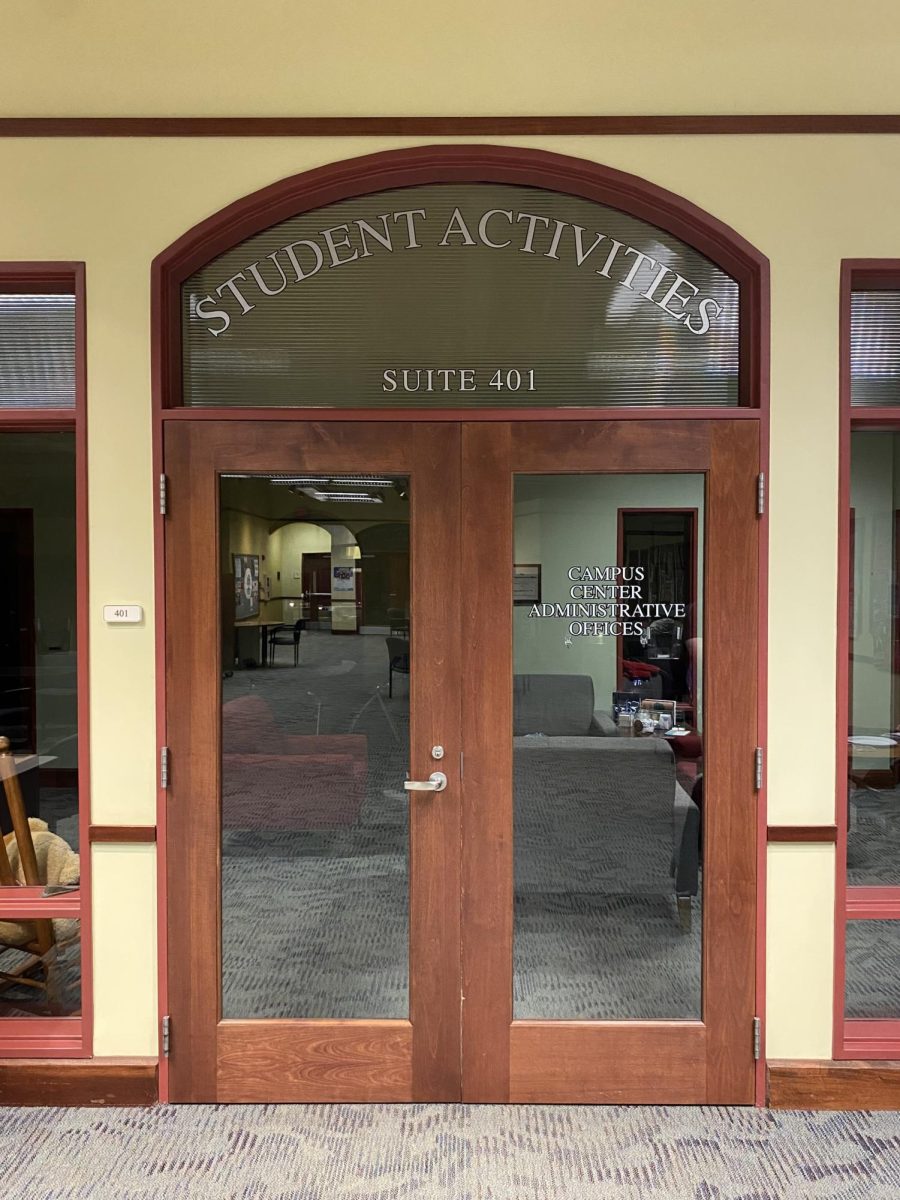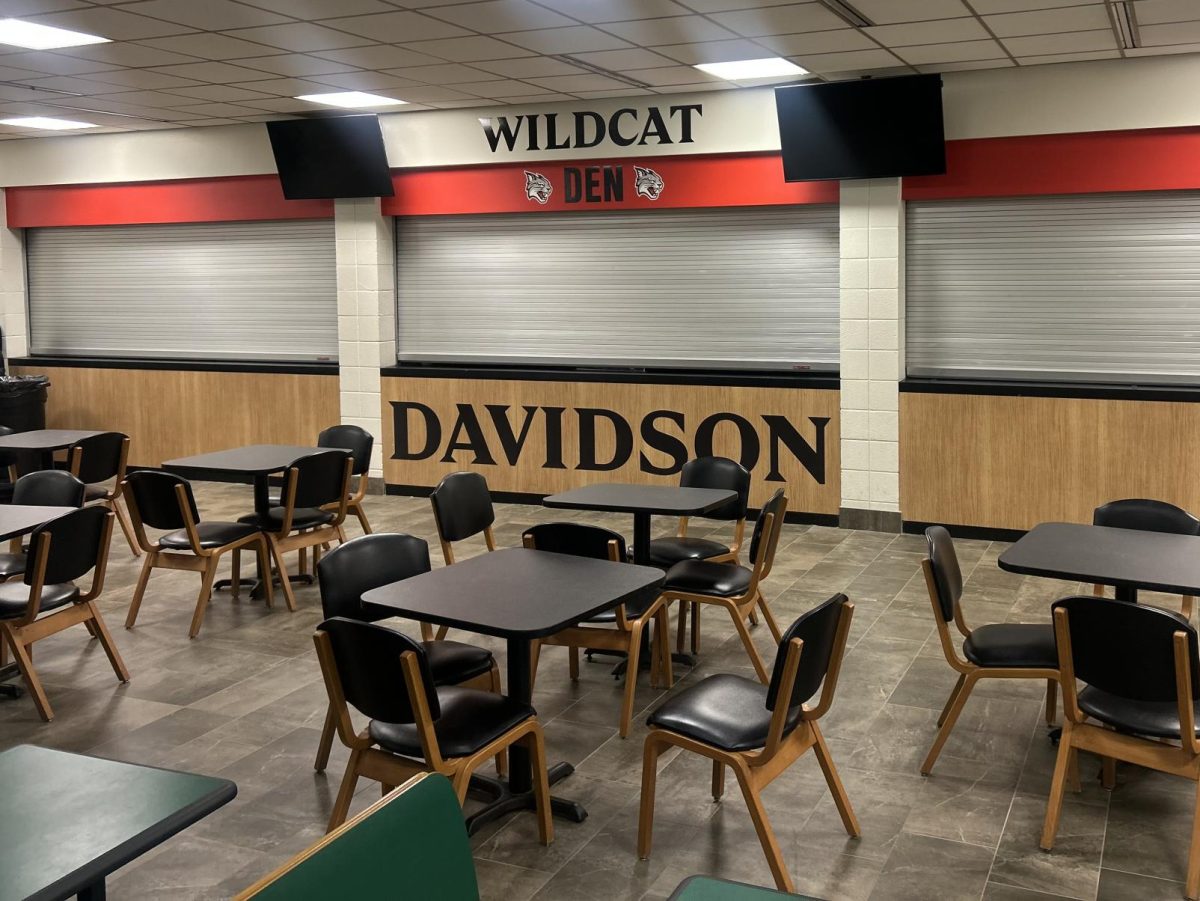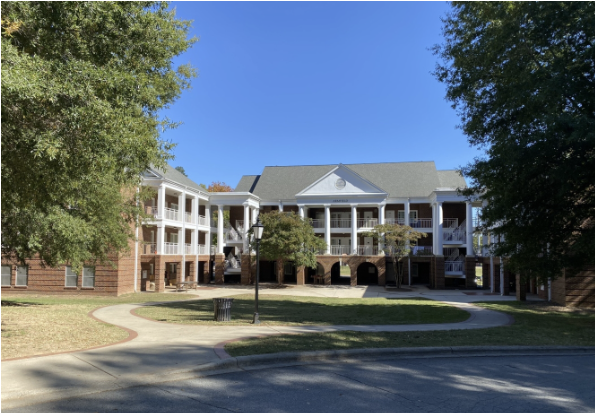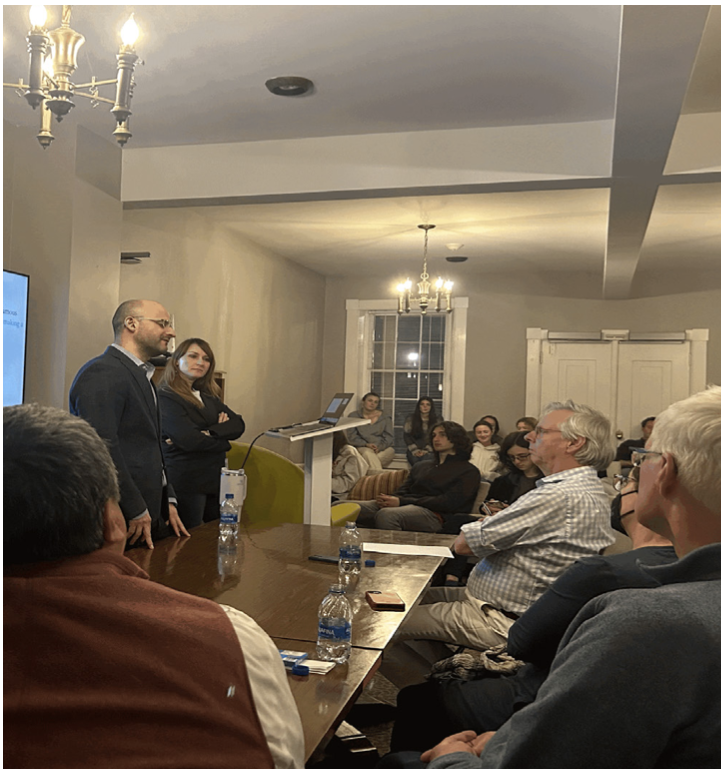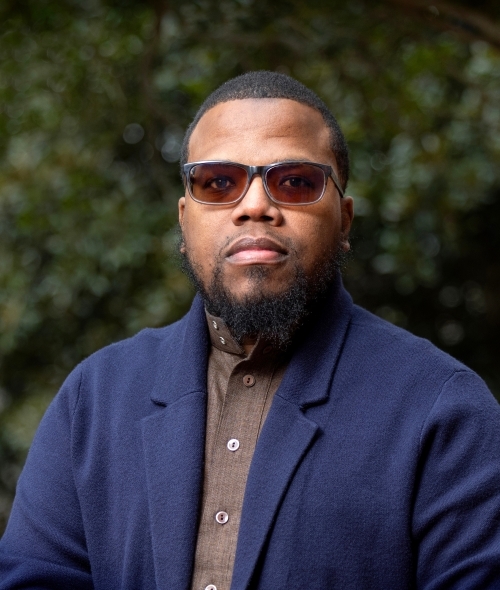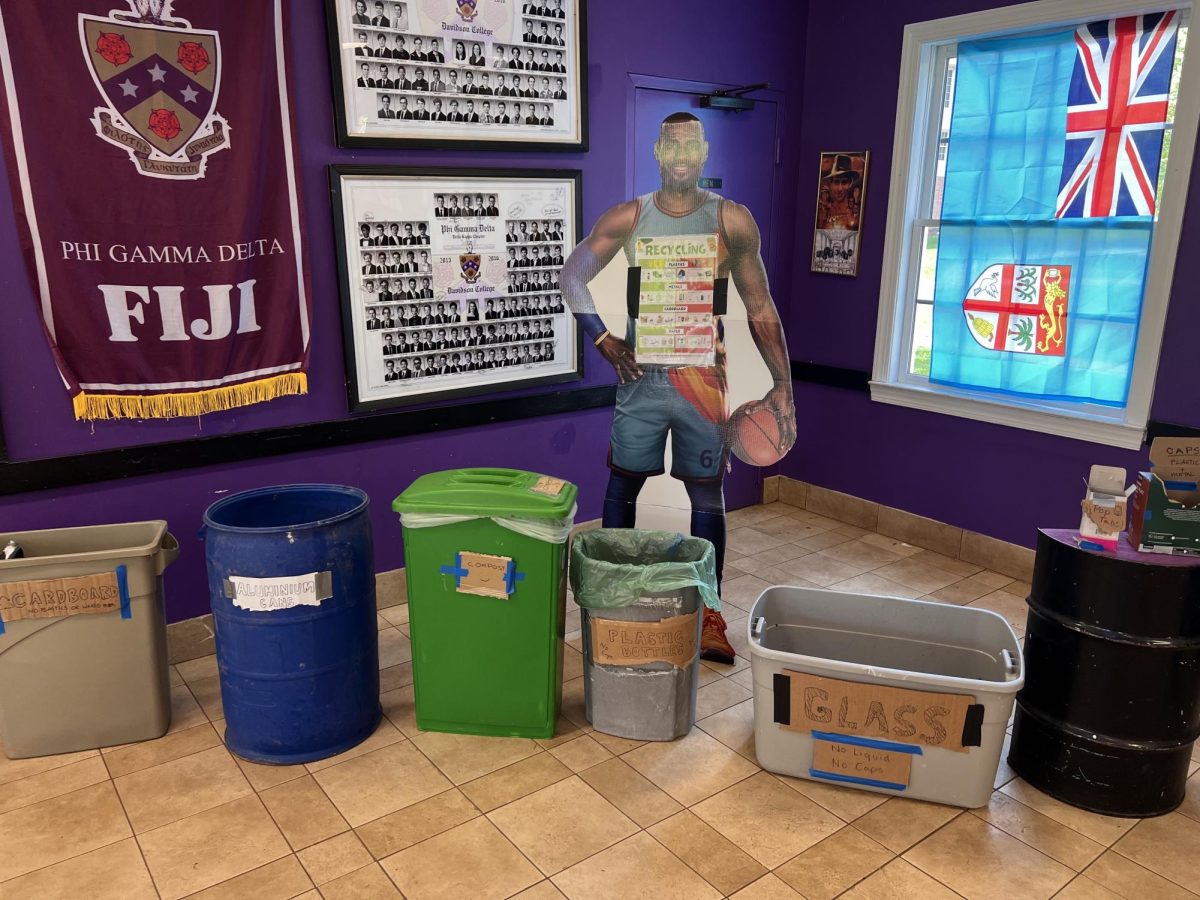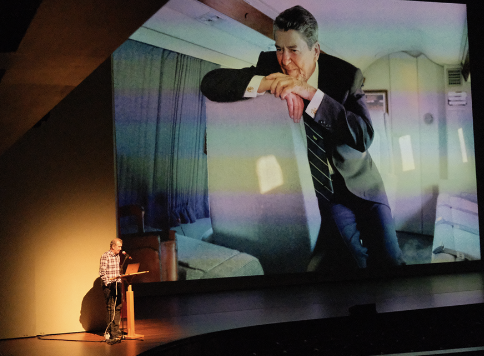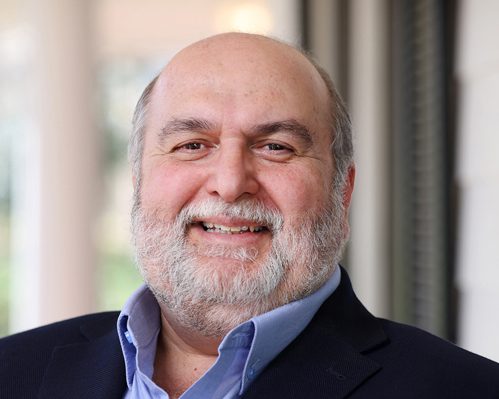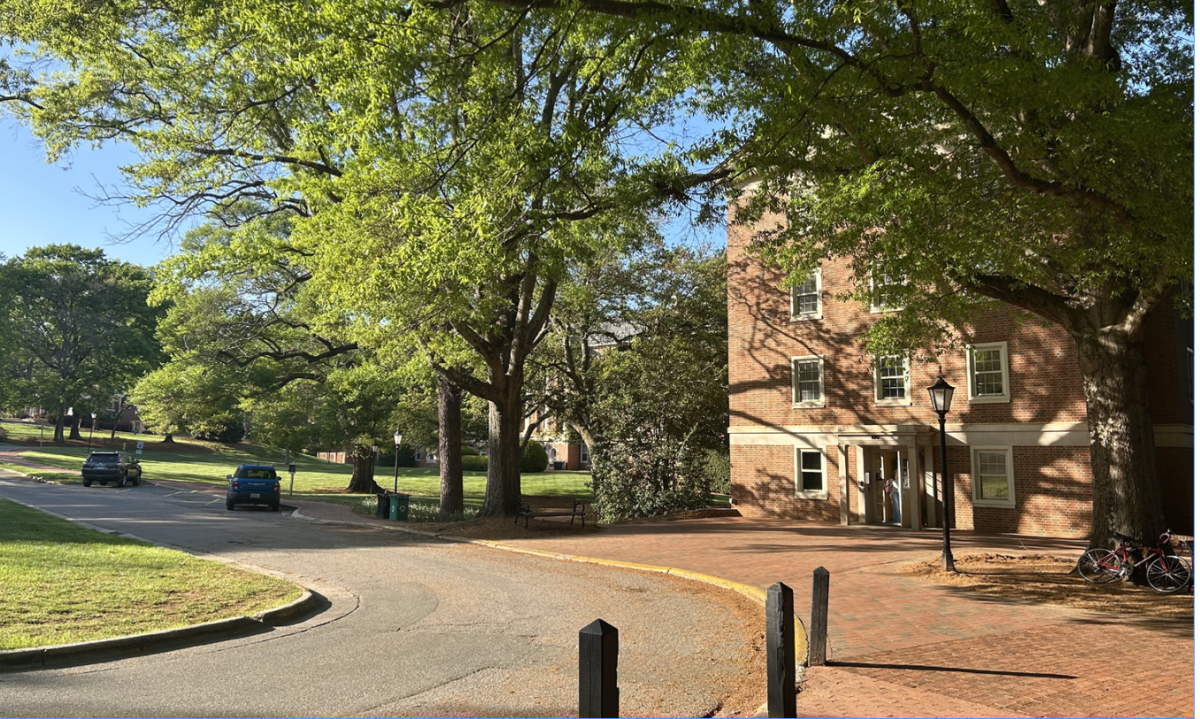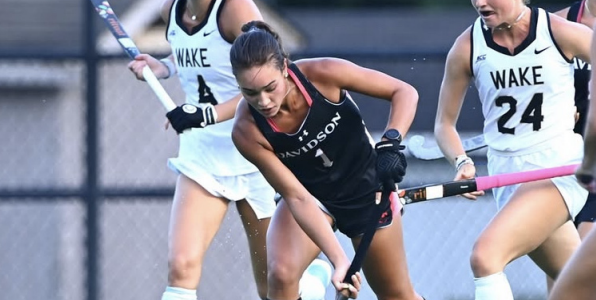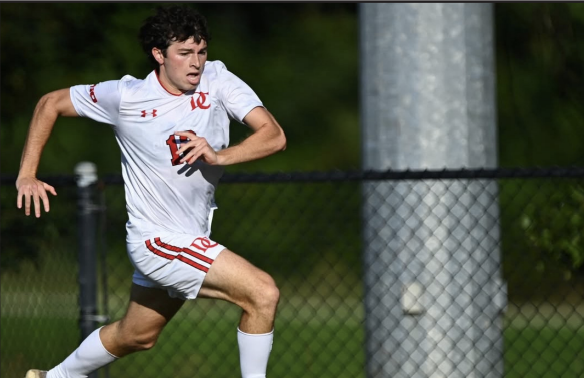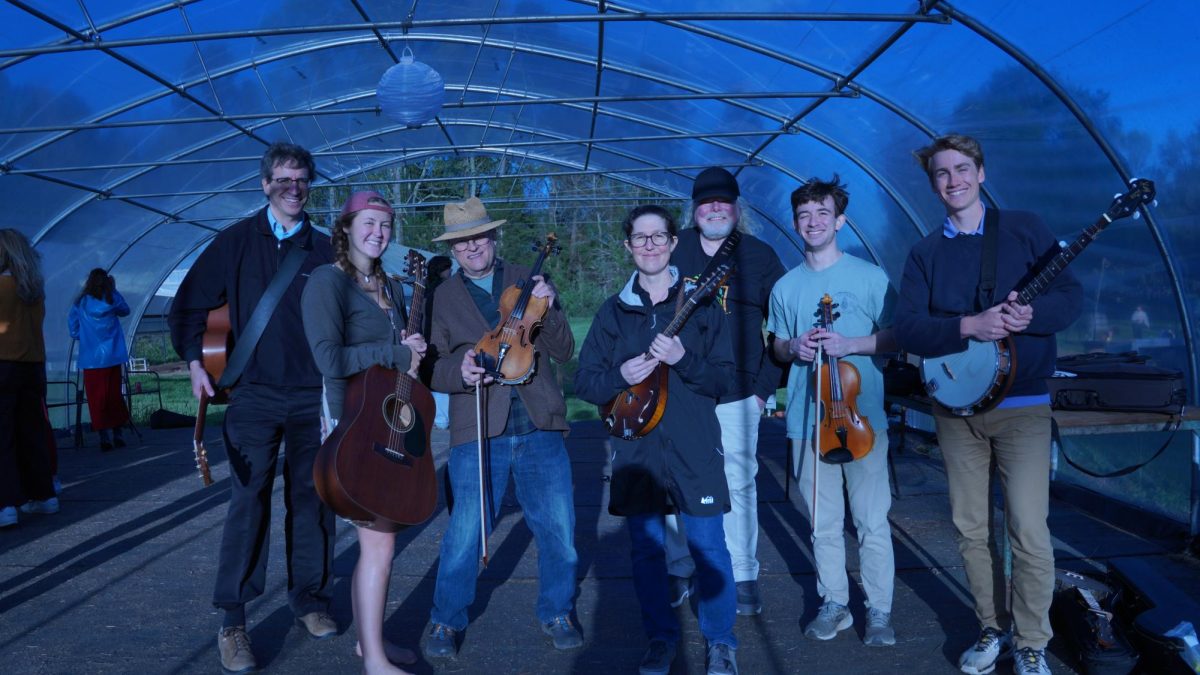In their first practice of the year, new members of the Appalachian Ensemble learned five songs. They were given no formal instructions or sheet music. Instead, each new member picked up their instrument and worked out the tunes by ear.
Ensemble Director and professor Jon Singleton started the ensemble nine years ago with now-retired Professor of Music Bill Lawing ‘73. The ensemble consists of around ten members playing banjo, mandolin, guitar, fiddle, and stand-up bass. Students make up most of the group, but professors and Davidson staff are also included.
Appalachian music is the folk music of the Appalachian mountain region, which stretches from Georgia to West Virginia. It encompasses several genres, including old-time and bluegrass.
Singleton believes learning the music by ear is vital to maintaining the tradition of the genre.
“This music is not written down, for the most part,” Singleton said. “It’s transferred from person to person. You can learn it written down and you can buy books that the music is in, but it’s from the wrong channel.”
In preparation for frequent performances, Singleton leads weekly practices and gives private instrument lessons—something he has done at Davidson for over 25 years.
Many of the group’s members are first-year students. One of them is Megan Good ‘29, who has been playing the fiddle since childhood.
“I didn’t know I would have the chance to continue playing fiddle in college, so when I heard there was the opportunity, I absolutely wanted to join,” Good said.
Mena Tanner ‘28, who plays guitar, appreciates the community aspect of the Appalachian Ensemble.
“I grew up in Appalachia, in western North Carolina,” Tanner said. “I’ve always grown up listening to this music with my family. […] Now that I have instruments of my own, I think it’s cool to learn how to play that kind of music and to play it with others.”
Singleton believes that the abundance of first-year members could have a positive impact on the future of the Appalachian music community on campus.
“We’re lucky to have our freshmen join this semester as they become the nucleus and make the [Appalachian Ensemble] their own as the older students graduate,” Singleton said.
Not everyone in the Appalachian Ensemble was familiar with the music before coming to Davidson. “Living here, you get exposed,” Professor of Biology Karen Hales, who grew up in California, said.
Hales, who plays mandolin, is now one of the group’s longest standing members, playing with them regularly since 2017. The ensemble’s experienced members, including Professor of Educational Studies Rick Gay and Professor of History John Wertheimer, are valuable resources for members who are still developing their skills.
“[During practice,] I was looking to my right a lot to Dr. Gay,” Tanner said. “[He] was helping me know which chords to play.”
Playing Appalachian music also requires constant listening and being present in the moment, according to Singleton.
“I actually welcome when people make little changes,” Singleton said. “We’re all listening very hard and we’re playing together, and the little changes they make will complement [the tune]. […] I want them to add their own touches and life to our tunes,” Singleton said.
Good agrees that personalization and change are important for the genre.
“Every time you play a bluegrass song, it’s never been like that before,” Good said. “And that’s only because we learned it by ear and in community.”
These improvisations are part of what makes Appalachian music fun to play, according to Good. They are also a driving force of the genre’s constant evolution.
Despite the genre’s firm roots in the past, often performing tunes Singleton describes as, “your grandfather’s greatest hits,” musicians are still finding ways to keep the genre relevant in the present day.
One way the genre remains relevant is through the growing group of contemporary Appalachian performers and composers.
One such composer is former Appalachian Ensemble member Mike Mitchum ‘25. A skilled banjo and fiddle player in the ensemble, Mitchum composed tunes such as “Davidson Jig” and “Upward Climb,” both of which the ensemble still perform.
Old or contemporary, the spirit of Appalachian music is the connection to the deep tradition and history of the Appalachian region, according to Singleton.
“At one time or another, we all had ancestors in the mountains somewhere,” Singleton said. “[So for the audience], this is the music of their ancestors, and we’re honored to bring it to them.”

